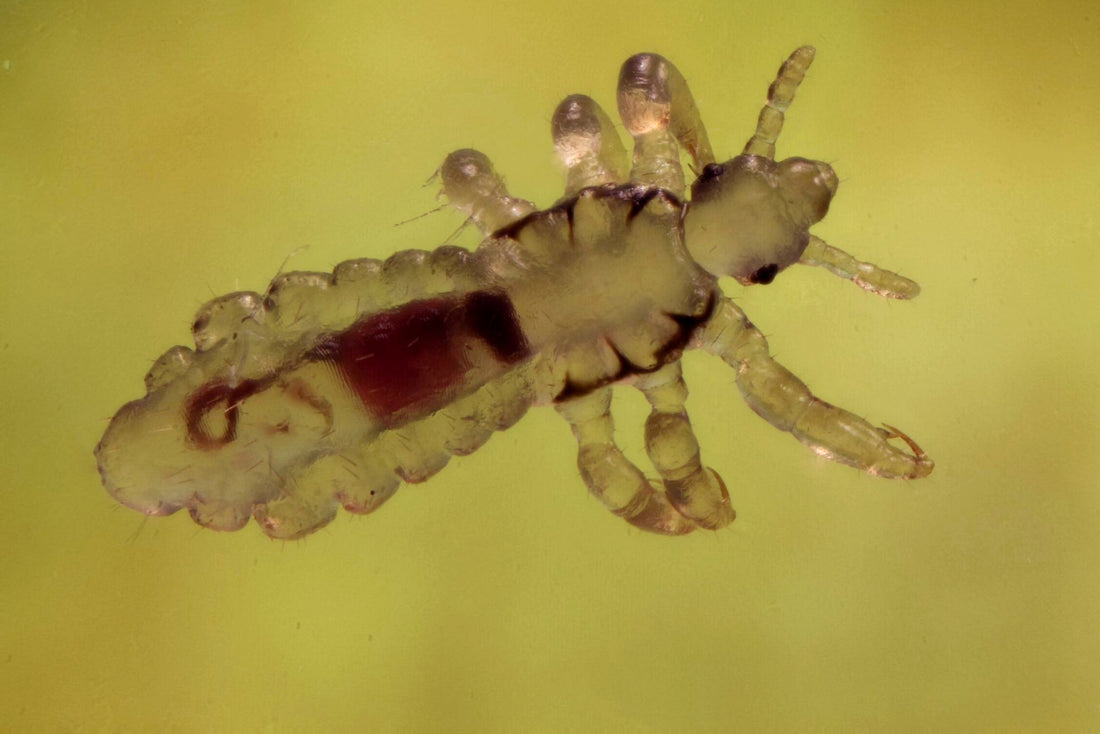If you're a chicken owner, you know that mites and lice can be a serious problem for your flock. These tiny pests can cause discomfort, irritation, and even disease in your birds if left untreated. In this article, we'll explore how to identify mites and lice on chickens and how to get rid of them using natural and chemical methods.
Identifying Mites and Lice on Chickens
The first step in getting rid of mites and lice on your chickens is to identify the problem. Mites and lice are tiny, wingless insects that can be found on the skin and feathers of your birds. They are often too small to see with the naked eye, but you may be able to see them moving around if you look closely.
Mites and lice can cause a number of health problems in chickens, including:
Irritation and discomfort
Feather loss
Anemia
Disease transmission
If you suspect that your chickens have mites or lice, you should inspect them carefully for signs of infestation. Look for tiny, moving insects on their skin and feathers, as well as any signs of irritation or feather loss. You may also notice an increase in dust in your coop or run, as mites and lice can cause chickens to fluff their feathers more than usual.
Treating Mites and Lice on Chickens
Once you have identified mites or lice on your chickens, it's important to take action to get rid of them as soon as possible. There are several natural and chemical methods that can be used to treat mites and lice on chickens, depending on the severity of the infestation.
Natural Treatments
One of the most effective ways to treat mites and lice on chickens is with natural remedies. These treatments are safe, effective, and easy to use, and they won't harm your birds or the environment.
Diatomaceous Earth: Diatomaceous earth is a fine, powdery substance made from the fossilized remains of diatoms. It works by drying out and dehydrating mites and lice, causing them to die. To use diatomaceous earth, simply dust it onto your chickens' skin and feathers, paying special attention to the areas around their vent and under their wings. Repeat this process every few days until the infestation is gone.
Neem Oil: Neem oil is a natural insecticide that is effective against mites and lice. It works by disrupting the insects' reproductive cycle, preventing them from laying eggs and reproducing. To use neem oil, dilute it with water and spray it onto your chickens' skin and feathers, paying special attention to the areas around their vent and under their wings. Repeat this process every few days until the infestation is gone.
Herbal Sprays: Herbal sprays are a natural and effective way to repel mites and lice from your chickens. To make an herbal spray, steep a handful of herbs such as lavender, thyme, or peppermint in boiling water for 20-30 minutes. Strain the liquid and let it cool, then transfer it to a spray bottle and mist your chickens' skin and feathers. Repeat this process every few days until the infestation is gone.
Chemical Treatments
If the natural remedies don't work or the infestation is severe, you may need to use chemical treatments to get rid of the mites and lice. Chemical treatments can be effective, but they can also be harmful to your birds and the environment, so it's important to use them carefully and according to the instructions.
Permethrin: Permethrin is a common insecticide that is effective against mites and lice. It works by disrupting theinsects' nervous systems, causing them to die. To use permethrin, dilute it with water and spray it onto your chickens' skin and feathers, paying special attention to the areas around their vent and under their wings. Repeat this process every few days until the infestation is gone.
Ivermectin: Ivermectin is a medication that is often used to treat parasites in animals, including mites and lice on chickens. It can be given orally or topically, depending on the type of infestation. It's important to use ivermectin carefully and according to the instructions, as it can be harmful to your birds if used incorrectly.
Preventing Mites and Lice on Chickens
Prevention is the key to avoiding mites and lice on your chickens. Here are some tips to help prevent infestations from occurring:
Keep your coop clean: Mites and lice thrive in dirty, dusty environments. Keep your coop clean and well-ventilated to reduce the risk of infestations.
Provide dust baths: Chickens love to dust bathe, and it's an important part of their hygiene routine. Provide a dust bath area in your coop or run, and make sure it's filled with clean, dry soil or sand.
Quarantine new birds: If you're adding new birds to your flock, it's important to quarantine them for a few weeks before introducing them to your other chickens. This can help prevent the spread of mites and lice to your existing flock.
Inspect your birds regularly: Regular inspections can help you catch mites and lice early, before they become a serious problem. Check your birds' skin and feathers for signs of infestation, and treat them promptly if you notice any issues.
Mites and lice can be a serious problem for chickens, but there are several natural and chemical methods that can be used to treat and prevent infestations. Natural remedies like diatomaceous earth, neem oil, and herbal sprays are safe, effective, and easy to use, while chemical treatments like permethrin and ivermectin can be effective for severe infestations. By taking steps to keep your coop clean, provide dust baths, and regularly inspect your birds, you can help prevent mites and lice from becoming a problem for your flock.

